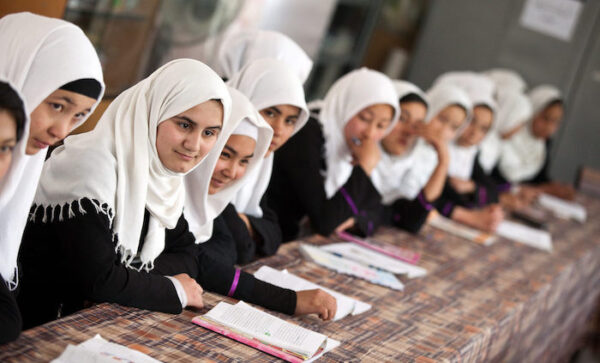
Afghanistan’s academics despair months after Taliban takeover
Four months after the Taliban took control of Afghanistan, academics say they feel deserted, and abandoned by the transnational community. With limited prospects for exploration, numerous scientists have left or are still trying to find routes out, so they can continue their careers.
Experimenters say they’ve been stripped of their finances and academic freedoms and don’t feel valued by the new government. Numerous continue to sweat being bedeviled for their transnational connections, race or gender — or because they’ve been critical of the government — and some say they’ve been hovered with death or retaliation by the Taliban.
“ The current government has had a fully destructive effect on exploration,” says Shohra Qaderi, who’s from Afghanistan but is presently studying clinical wisdom and public health at Shahid Beheshti University of Medical Lores in Tehran. “ Exploration is a form of freedom of speech for scholars, but this freedom of speech has been taken by the Taliban.”
Qaderi was due to return to a university in Afghanistan before this time, but decided to extend her stay in Iran because of the dire situation for experimenters.
The Taliban seized power inmid-August as the last of the US- led coalition colors that had been supporting the former government pulled out. But the broader transnational community has not yet honored the current government. Billions of bones in backing, means and loans allocated for government agencies and development and philanthropic services remain frozen. And exploration backing from transnational sources is no longer flowing.
Some transnational benefactors are looking for ways to hand out finances throughnon-governmental channels, but that has taken time. On 10 December, benefactors agreed to releaseUS$ 280 million to the United Nations children’s agency UNICEF and the World Food Programme to directly deliver essential health services and food backing to further than 10 million people in the country.
Understandably, “ exploration isn’t really a precedence”, says Jaffer Shah, a clinical experimenter at Drexel University in Philadelphia, Pennsylvania, but who’s grounded in New York City and collaborates with associates in Afghanistan.
The nation’s roughly 40 public universities and advanced- education institutions officially remain open, but are effectively not performing. Experimenters say government officers have told staff to continue registering their attendance, but classes aren’t running. University staff members haven’t entered their hires since before August, and transnational backing for exploration systems has been put on hold. Womanish faculty members are still allowed to work, with some restrictions.
“ We’re just wasting our time then,” says a experimenter who asked to remain anonymous. After the Taliban preemption, they were still importing their options, but now they’re considering leaving the country because their exploration has stalled and their teenage son has not been suitable to go to academy.
In August, the Taliban bannedco-education of manly and womanish university scholars — and numerous public universities are still working out the practicalities of enforcing insulated tutoring. The Taliban government has also placed representatives at public universities. In one extensively reported case, the government appointed avice-chancellor for the prestigious Kabul University, but staff members supposed the seeker unqualified for the position, leading to wide adoptions. He was latterly replaced by another seeker.

